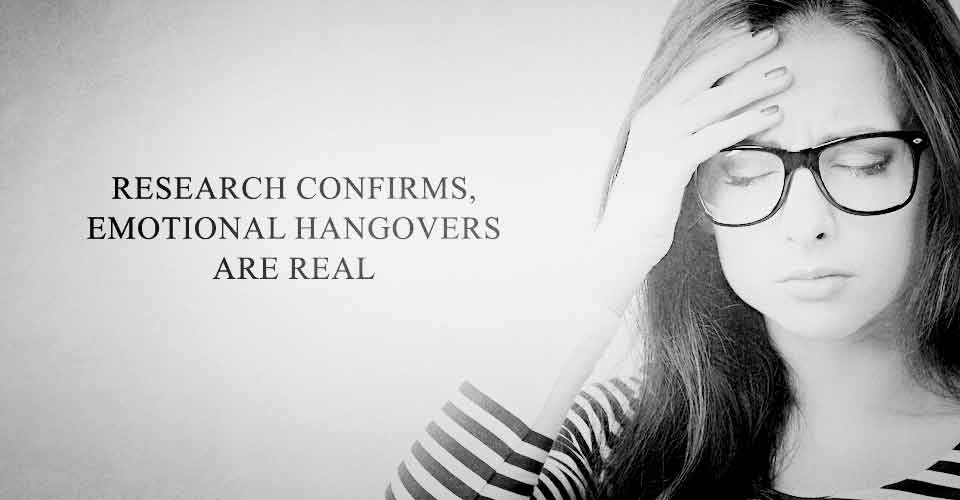Have you ever woken up after an emotionally taxing night with a pounding head, a queasy stomach, and an overall sense that your life had gone off course? Did this confuse you, since you had wisely decided not to drink away your troubles the night before?
Did your shame, regret, and feelings of illness feel as profoundly physical as if you had?
You, my friend, have been the victim of an emotional hangover.
Long thought to be a myth, researchers at NYU have recently confirmed the existence of this phenomenon. Their study determined that emotional hangovers are both real and biological. They affect our mind in ways that forever change our memory and response to future events. Emotional trauma can cause our memories to enhance, alter, and even to misfire – in much the same way as alcohol does.
“How we remember events is not just a consequence of the external world we experience, but is also strongly influenced by our internal states–and these internal states can persist and color future experiences,” explained Lila Davachi, an associate professor in NYU’s Department of Psychology and Center for Neural Science and senior author of the study. “Emotion is a state of mind. These findings make clear that our cognition is highly influenced by preceding experiences and, specifically, that emotional brain states can persist for long periods of time.”
Emotion is integral in the formation of memories. It has long been known that emotional experiences stay with us longer than ones that are not emotionally significant. This study expands on that concept, and finds that even non-emotional experiences are burned into our memory when they follow an emotionally charged one. Our brain remains in an emotional state even after the event has passed, and forms vivid memories accordingly.
To complete this study, the researchers had one group of subjects view highly emotional imagery, followed by non-emotional scenes. Another group did the same, but the order was reversed. Researchers measured the mental impact of this content on the viewers using fMRI technology. They also measured their physical response through skin conductance. After six hours had passed, researchers gave each subject a memory test regarding the images.
From this process, researchers found that the group who viewed the emotional subject matter first were better able to recall the non-emotional imagery. The emotional changes in their brain were at play long after the emotion itself had passed.
“We see that memory for non-emotional experiences is better if they are encountered after an emotional event,” concluded Davachi.
Yes – the emotional hangover is real, and it changes the way our brains work. The next time you have one, go easy on yourself. Stay in bed. Give yourself permission to nurse it as you would the real thing.



